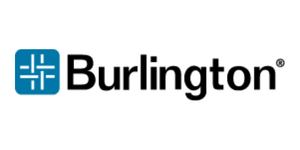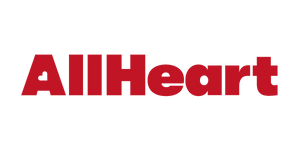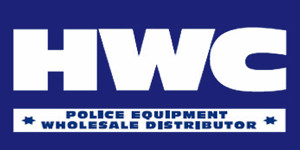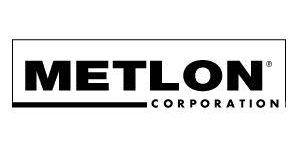 By Joseph Greco, MSOD By Joseph Greco, MSOD
Why does planning seem to be one of those good ideas about which we recognize the value but dont do frequently or effectively enough? Possibly because when things are going well, we dont think we need to worry about planning. But dont wait for problems to arise first. It may be too late when it becomes apparent that customers are consistently not very happy or losses occur or business is lost and we are forced to refocus. The better strategy is to plan while things are going well. Theres a metaphor that drives this home. If youre canoeing five miles upriver from Niagara Falls and you have a problem with your boat, theres plenty of time to paddle to the bank and make a repair. But if you are 100 yards away from the falls, hearing their roar, theres not much youll be able to do before taking the plunge. As a small business owner, I realize its tough to operate the business day-to-day and take time to plan for the future. Remember the clich that if you fail to plan, you are planning to fail. Im here to tell you that planning meetings can be beneficial, profitable and fun, especially when morale can be enhanced among your associates. Periodic planning sessions are a beneficial tool for when the pressure is not severe so you can keep your ship on a successful course. These should be conducted possibly every six months, but dont wait more than one year between sessions. Alignment sessions between planning meetings are helpful as well to make sure everyone is aware of the long-term goals and how the company is mindfully working toward those. If you are not conducting regular planning sessions, heres an approach you can consider. First, allocate some time, at least a day and a half, and schedule the session off site. This will focus attention on the importance of the work and invite a brainstorming atmosphere free from daily distractions. Its amazing what a change in environment can do to broaden thinking and problem solving. You may have to use a weekend day if necessary. This will also allow for some social time among associates and encourage conversation about company issues while not in full operating mode as you would be in the office environment. At Greco Apparel, we use a system taught by my management consultant, Marc Levin. Marc has worked for years with companies in a number of different industries, but the principles remain the same. We start with a review of our mission statement. Is it understandable and still relevant? This can lead to a discussion in answering the critical question of what business we are in? In our business, we focus on quality garments and complete orders delivered on time. We think this is the way to delight our clients. This definition may vary from time to time depending on market conditions and client demands or changes in core competency. As in any brainstorming session, keep an open mind and freely encourage the flow of ideas. You can always be critical later in the session when you pare down the suggestions into a workable plan. Next, discuss the accomplishments that have occurred during the intervening time since the last session. If youve never done one, start with accomplishments over the past year or two. Group people into pairs so they can talk and make a list together. Bring the group back together and list the points on a wall chart. Following this activity, ask those same pairs to list the problems, issues and challenges that need attention now. Your goal is to have the solutions become the accomplishments at the next planning meeting. At this point, you should review your organization chart. Determine if the current structure of the organization is properly aligned to accomplish the goals or make the improvements that have been identified. Consider the roles on the chart and how they are defined. Do you have the right people in the right roles? Who needs more training? Who needs to be reassigned or replaced? Are the managers working to assure that their associates have the proper resources to perform their tasks successfully? Can the managers report that their group is effective and efficient? Will one division need additional help to address a newly identified problem? Next, analyze the structure around the people in your company. Consider the virtual and physical environment and how it is helping or hurting reaching your goals. Which resources need to be added? Are your facilities and systems adequate? Does your software still support your mission? Prioritize and budget for the most crucial changes first. I am certain you will be both surprised and pleased at the contribution your associates can make toward improving the operation. I remind myself of the saying You dont have to do all that you know, but you should strive to know all that you do. This planning meeting will be an opportunity for you to tap into an extremely valuable asset your own people. How valuable can they be? There was a recent article in Fortune Small Business about a consulting firm that does $134 million in annual volume, and they regularly turn clients away. Their main approach is to make a huge investment and hire the former employees of the client company to brief the consultants about the culture of the troubled client. They learn a tremendous amount of valuable information rapidly and are able to design and implement an improvement strategy for turn-around success. While there are many methods to a planning session, this is one method that works. Why wait until you run into trouble and lose employees and possibly your business? Plan to have a planning session so you can ask your current employees for their critical and invaluable contributions while they still work for your company. Use the assets you have readily available to invest in your future success. You also have an excellent opportunity to express your leadership as you contribute your philosophy and guidance during the meetings. |
| Above story first appeared in MADE TO MEASURE Magazine, Spring & Summer 2008 issue. All rights reserved. Photos appear by special permission. |
| Halper Publishing Company 210 Skokie Valley Road, Suite #4 Highland Park, IL 60035 (877) 415-3300 Fax (847) 780-2902 [email protected] |










